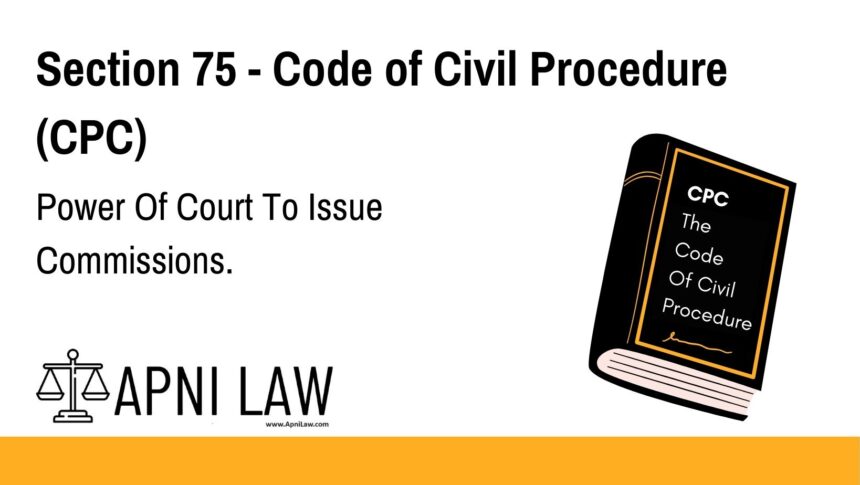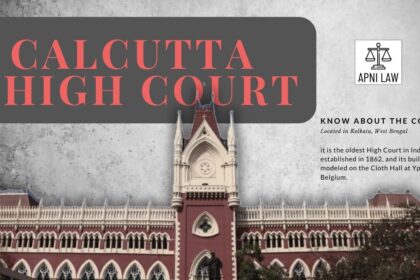Code
CPC Subject to such conditions and limitations as may be
prescribed, the Court may issue a commission(a) to examine any person;(b) to make a local investigation;(c) to examine or adjust accounts; or(d) to make a partition;1[(e) to hold a scientific, technical, or expert investigation;(f) to conduct sale of property which is subject to speedy and natural decay and which is in the
custody of the Court pending the determination of the suit;(g) to perform any ministerial act.]
Here’s a clear ApniLaw-style article for the CPC provision you shared:
CPC – Power of Court to Issue a Commission
Code Text (Formatted)
Subject to such conditions and limitations as may be prescribed, the Court may issue a commission:
(a) To examine any person;
(b) To make a local investigation;
(c) To examine or adjust accounts;
(d) To make a partition;
(e) To hold a scientific, technical, or expert investigation;
(f) To conduct sale of property which is subject to speedy and natural decay and is in the custody of the Court pending the determination of the suit;
(g) To perform any ministerial act.
Explanation
Section empowers the Court to delegate certain judicial or administrative functions to a third party by issuing a commission.
- Purpose: Ensure accurate fact-finding, accounting, or investigation when direct involvement by the Court is impractical.
- Scope of a Commission:
- Examination of Witnesses – If the witness cannot appear personally before the Court.
- Local Investigation – Inspect land, premises, or other facts that are local or remote.
- Accounts – Expert can examine or adjust financial accounts.
- Partition – A commissioner may oversee partition of property as per Court orders.
- Scientific/Technical Investigation – Expert may be appointed for technical questions (e.g., structural report, chemical analysis).
- Sale of Perishable Property – Court may authorize the sale of property that may decay if delayed (e.g., perishable goods).
- Ministerial Acts – Other administrative tasks that the Court cannot personally perform efficiently.
- Conditions and Limitations:
The Court may impose limits on:- Scope of investigation
- Mode of examination
- Reporting timelines
- Powers of the commissioner
Illustration
- Witness Examination: A witness residing in a distant city cannot appear. The Court issues a commission to a local magistrate to record the witness’s testimony.
- Partition: Two brothers inherit a property and cannot agree on division. The Court issues a commissioner to divide the property according to shares.
- Expert Investigation: In a patent infringement suit, a technical expert is appointed to examine the product and report findings.
- Perishable Property: Fruits in custody of Court pending a dispute; Court issues commission to sell them before they spoil.
Common Questions & Answers
Q1. What is the purpose of issuing a commission under CPC?
👉 To delegate investigation, examination, or ministerial tasks that the Court cannot practically perform itself.
Q2. Can the commissioner make final decisions?
👉 No. The commissioner reports findings to the Court, which makes the final decision.
Q3. Who can be appointed as a commissioner?
👉 Any person capable and competent to perform the assigned task, such as a magistrate, accountant, surveyor, or technical expert.
Q4. Are there limits to the powers of the commissioner?
👉 Yes, the Court may prescribe conditions, limitations, and scope in its order.
⚖️ Conclusion:
The provision allows the Court to issue commissions for efficient administration of justice. It ensures facts are properly investigated, witnesses examined, and administrative or technical tasks carried out, all while preserving judicial oversight.








